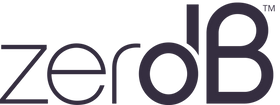January is almost behind us. Some of you have set goals, and some haven’t. If you haven’t, don’t fret, as it’s never too late.
I like to finalize my vision for the upcoming year around mid-January. The beginning of the month comes with various demands, making it hard to meet a strict goal-setting deadline.
But the real question is, how should we approach goal setting, and is it necessary? The short answer is that any planning is better than no planning, but there can also be too much of it. This topic is highly subjective, but let’s explore three ways to approach the new year.
- Running in the wrong direction is worse than staying still: Many of us need to stay busy – I’m guilty of that. I’m comfortable when I feel productive. But being productive just for the sake of it is fraught with caveats. Before making any tactical plans for the year, reflect on the direction your life has taken. Does it provide you with a sense of purpose? Invest time in understanding your 'why' and your 'north star' before creating potentially counterproductive goals and targets. Start with these three reflective questions: Would I be doing this if it wasn’t for the money? What aspects of my vocation or career fulfill me the most? Is my unique ability being fully realized in my life? These questions will provide greater awareness before tackling the tactical.
- It’s about the process, not the results: Now that we have a little more awareness of what drives us, let's consider the vision for the year we want to create. Hal Hershfield, a UCLA Professor of Psychology, illustrated how we feel a greater connection with our future selves when we envision ourselves in the future, a concept known as temporal discounting. Try this experiment: Project yourself to this moment next year. How do you look? How do you feel? What have you achieved in the past year? Reflect deeply through that person’s eyes. Articulate that life in detail – this is your 'north star.' Now jot down 2-3 key milestones for each quarter that will help you achieve this vision. Then, focus on the process, and feel free to adjust your tactics monthly or quarterly.
- Develop a habit to end your day and begin the next: To avoid being overly burdened with processes, the least we can do is review our effectiveness each day and set a focus for the next. There are countless tools for this, but a simple start is to ask at the end of the day: Why was I effective or ineffective today? And at the start of the next day: What do I need to accomplish today to make it effective? The complexity of recording and tracking these answers can vary, but increasing awareness is a great start.
We owe it to ourselves to spend a little time making this a fulfilling year. Happy
sailing!
And when in doubt… Pause. Breathe. And Quiet the Noise.
